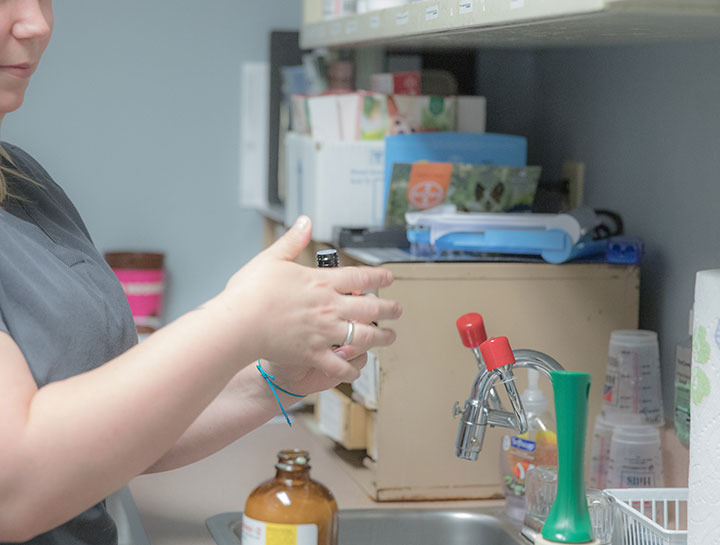Why are Wellness Panels Important in Healthy Pets?

Preventative medicine is very important in human medicine. Your own doctor will typically request that you have bloodwork and urine testing performed prior to a physical exam. By evaluating this bloodwork and the findings on your physical, your doctor can gauge whether you have any medical concerns that need to be acted upon.
In a similar fashion, we in veterinary medicine believe that preventative medicine is extremely useful. Checking baseline labwork in an adult or senior pet, even if outwardly healthy, can not only verify that a pet is truly healthy but in some cases, it can shed light on a possible underlying medical condition for which the pet is not yet showing symptoms of.
So what does a wellness panel include?
For adult cats, it includes a complete blood count (CBC), a chemistry panel, a urinalysis, and a fecal analysis. For adult dogs, it includes a CBC, chemistry panel, a urinalysis, a fecal analysis, and a 4DX blood parasite test (checking for Heartworm, Lyme disease, Ehrlichia, and Anaplasmosis). In senior pets, a thyroid level is also performed.
The CBC checks a pet’s red blood cells (erythrocytes), white blood cells (leukocytes), and platelets (thrombocytes). Various changes in these cell types could indicate chronic illness, blood loss, inflammation, infection, and clotting disorders.
A chemistry panel includes tests that evaluate the liver, the kidneys, the pancreas, blood glucose, blood proteins, and electrolytes. Not all abnormalities on a chemistry panel are concerning, but some are. Many pets with chronic disorders of the liver and kidneys may be asymptomatic at home but have abnormal results on blood tests. Suspicion of a problem based upon a wellness panel may lead to additional testing and disease diagnosis. Catching a disease in the early stages can result in better treatment options and longer survival.
A urinalysis is helpful in evaluating the urinary tract for infection and inflammation, but can also be useful in screening for certain conditions, such as diabetes.
A thyroid level is necessary to test thyroid function. In dogs with hypothyroidism (inactive thyroid), this level will be too low. In cats with hyperthyroidism (overactive thyroid), this level will be too high. Both of these are common diseases and are treatable disorders, but accurate diagnosis requires bloodwork.
For a complete picture of your pet’s health, we strongly encourage you to have a wellness panel performed. Our doctors and staff are more than happy to discuss this with you, we welcome your questions!
Please call 585-394-2288 for more info.
